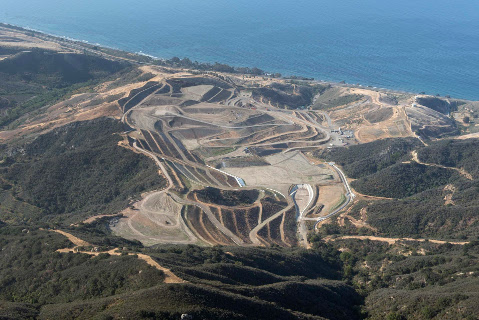Trash Wars Flare Up
City Balks at Pending Rate Increase as Landfill Expansion Plan Stalls

The long, bitter battle over plans to expand the lifespan of the county’s Tajiguas Landfill along the Gaviota Coast spilled over into Santa Barbara City Council chambers late Tuesday afternoon in a dispute about a relatively small rate increase needed to underwrite the cost of that expansion. The plans, 15 years in the making, include a massive $110 million recycling plant. They were sent back to the drawing boards earlier this year after a simple but massive oversight was discovered just as financing for the project was being obtained.
Even though the project is now on hold for at least a year, the fee increases at Tajiguas — owned and operated by Santa Barbara County Solid Waste Department — needed to pay for the expansion are going into effect this July anyway. Mayor Helene Schneider argued that until the project is back on track, city ratepayers should not be on the hook for an additional cent, nor should any city funds be spent. As proposed, the average city trash customer would see a $1.28-a-month increase in trash collection to cover project-related costs. Another $1 million would have come out of city reserves to soften the blow to Santa Barbara ratepayers.
County trash planners say the project will be delayed a year at most and that they need to begin accumulating the funds from the increased tipping fees now. Critics of the Tajiguas expansion and recycling project cited county internal memos describing a “draconian increase” in project costs as a result of the delay. They argued that City Hall should wait until the new project designs are approved and new cost estimates are released before committing any ratepayer funds.
New designs are needed because the previous project, it was discovered, encroached 173 feet into the state’s coastal protection zone, meaning it needed Coastal Commission approval. Critics claim the new design will delay the project by at least two years. Ultimately the council voted to shield ratepayers from the additional costs by paying the higher tipping fees — $1.6 million — from a reserve fund.



